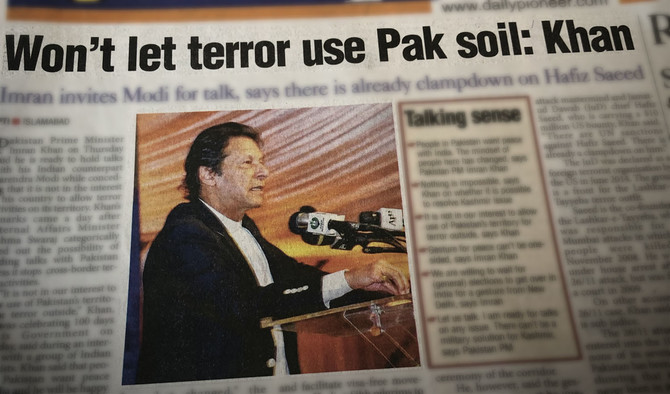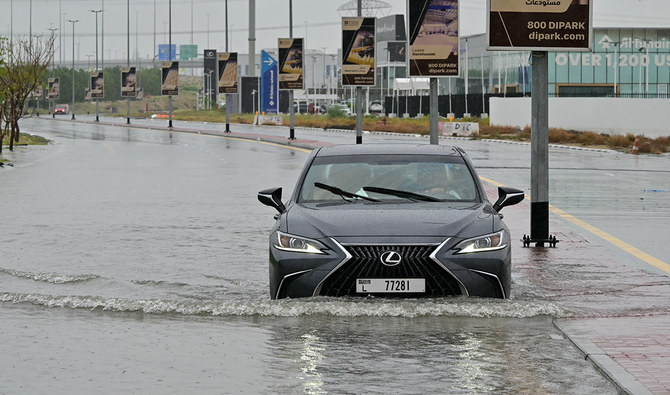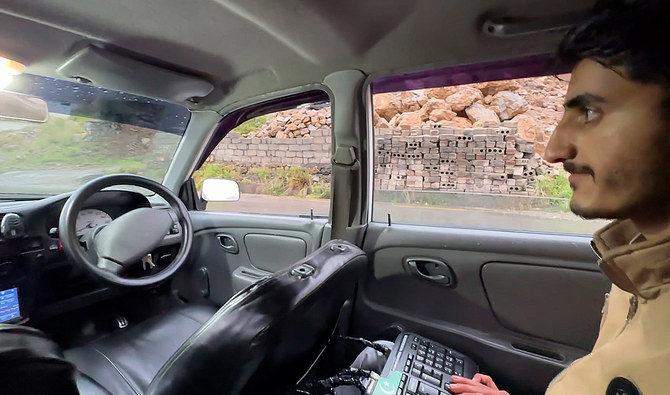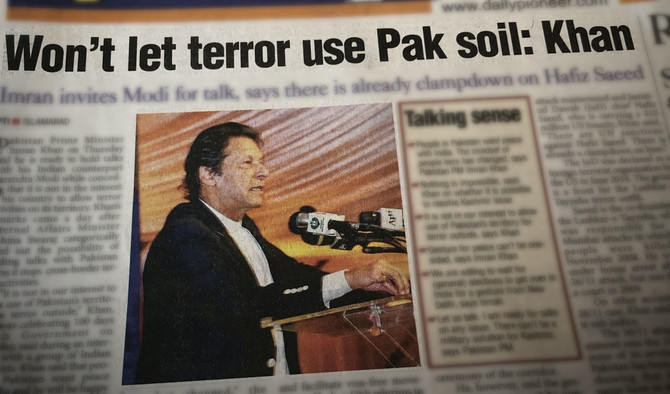DELHI: Pakistan Prime Minister Imran Khan’s extending of the olive branch to India received prominent coverage in the country’s media, with leading dailies covering his overtures of peace made during a speech when he inaugurated the Kartarpur corridor project on Wednesday.
English daily Hindustan Times (HT) lead with “Ready for talks with PM Modi any time, says Pakistan PM Imran Khan” as its headline. One of the largest-circulated English newspapers in India, the HT wrote that “a day after India said it was regrettable that Imran Khan referred to Kashmir at the ground-breaking of the Kartarpur corridor, the premier again raised the issue and said India shouldn’t treat it only as a ‘territorial issue’.”
The piece went on to say that “this was the latest in a series of strong statements made by the Pakistani administration expressing an inclination for greater engagement, most of which came in the wake of the two nations deciding to build a corridor for Sikh pilgrims from India to visit the Kartarpur shrine in Pakistan.” The story also highlighted the fact that “Khan called for India to make a fresh start during his term to revive the dialogue process between the two countries.”
On the other hand, New Delhi’s leading newspaper, the Indian Express chose to lead with the headline “There is a clampdown on Hafeez Sayeed…I have inherited the problem: Imran Khan.” The paper wrote that “Khan’s remarks on Saeed came the morning after Pakistan Foreign Minister Shah Mahmood Qureshi told Indian reporters that there has been no “tangible evidence” against Saeed. Khan, meanwhile, said that while a consensus for peace has developed, Pakistan’s outreach should not be confused as ‘desperation for peace’.”
In an editorial, The Tribune, a leading voice of the Indian state of Punjab, opined that “the ball is now in India’s court after it treated Pakistan’s earlier quest to utilize the Kartarpur corridor with suspicion as it sought a reset by glossing over past terror strikes in India that were incubated on its soil. Imran Khan’s call for amity and détente sounds more sincere with a reference to India’s bugbear — cross-border terrorism.”
It further added that “the unanimity among all the major players in Pakistan on improving ties with India, as Imran claims, should be reflected in bringing to book the masterminds of the Mumbai, Uri and Pathankot attacks, the actual cause for the strain.”
Pakistan PM’s overtures of peace tops headlines in India
Pakistan PM’s overtures of peace tops headlines in India

- Several newspapers report excerpts from speech made by Khan in Kartarpur
- Premier was in the area to inaugurate a project for a crossing between the two countries
Pakistani brothers inspire new volunteers after rescuing over 200 in UAE floods

- Affan and Suleiman Tanvir pulled families to safety during the cloudburst and provided them with food
- Their team has been rescuing tourists, adventure-seekers stranded in the desert over the past four years
ISLAMABAD: Since their move to the United Arab Emirates in 2008, Pakistani brothers Affan and Suleiman Tanvir have passionately devoted themselves to rescuing stranded travelers in different parts of the desert. But last month, their mission took an unexpected turn when the region experienced its heaviest rainfall in 75 years.
The brothers were suddenly thrust into a critical role, rescuing hundreds from waterlogged roads and submerged vehicles, as unprecedented floods transformed the streets into rivers. Alongside their team, they not only provided food and water but also pulled numerous cars to safety, navigating the chaotic aftermath of the storm in Dubai.
“We are proud of our work and glad to be recognized by the people for our rescue mission,” Affan told Arab News on Friday from Dubai over the phone. “We are honored and delighted to help people stranded on the roads during the torrential rains.”
Affan and his team rescued over 200 people and pulled out some 80 vehicles, including cars and minivans, during the rescue operation in Dubai and Sharjah that started in the morning on April 16 and continued for about two days.
Besides his brother Suleiman, the three other members of his rescue team included Alay Zaidi, Shahid Ibrahim Gul and Muhammad Owais.
Currently settled in Al-Hoshi in Sharjah, Affan brothers were born in Saudi Arabia while their parents belong to Karachi, Pakistan. In the UAE, they have set up a company for import and export of steel and transport.
The two brothers and their team were mentioned by several media houses for their heroic work, and the Pakistani consulate in Dubai acknowledged them by awarding certificates of appreciation.
“This rescue mission was not a new thing for us as we have been helping people stranded in the deserts for the last four years,” Affan said while narrating their extensive experience of saving people stuck in the desert terrain.
Affan said that they would receive frequent calls from adventure-seekers stuck in Ras Al-Khaimah desert for the rescue and relief as this was some 50-minute drive from their residence.
“We have a purpose-built vehicle along with all the accessories to pull out stuck cars, change their tires or toe them to main roads,” he said, adding that they had linked themselves to a local app, Rescue UAE, for people in need to get in touch with them.
“We use walkie-talkie to speak with the stranded people as there are no mobile phone signals in the desert,” he said, adding that they sometimes receive two or three rescue requests in a day from people stuck in the desert, especially during the winter season.
Talking about his team, he said that he started the rescue and relief work in 2020 along with his brother, but gradually his team started to grow with more people joining them.
“We are a 15-member team now and more people are joining us after getting inspired by our recent rescue work during the rains,” he added.
His team member Alay Zaidi told that two of their team members got shards in their feet during the rescue work, but they continued their mission to alleviate the sufferings of the families stuck on the roads along with children and women.
“It is a passion for us to help people in need, and we will continue doing our work with the same zeal and zest,” he continued. “We have received appreciation from the UAE people and officials for our work, and this is nothing less than a medal for us.”
Young Pakistani innovator dreams big with ‘self-driving’ car innovation

- Ehsan Zafar Abbasi belongs to a remote village in Abbottabad where he is known for his passion for science
- The 20-year-old drives his family car using computer keyboard, wants to set up automobile company like Tesla
ABBOTTABAD: Under the harsh glow of a fluorescent light, 20-year-old Ehsan Zafar Abbasi is busy examining the components of an obsolete printer he has just dismantled. A pre-engineering student from the remote village of Bagh in Pakistan’s Abbottabad district, he is known for his passion for taking electronics apart, often leading to innovative but sometimes unsuccessful repairs.
Abbasi recently captured the attention of his neighborhood by configuring his family car to mimic a self-driven vehicle. With the driver’s seat empty and the headrest removed, onlookers were captivated by the sight of an automobile that seemed to be driving itself.
Speaking to Arab News earlier this week, the young student said he first thought of driving a car through a keyboard while playing video games as a child.

“At that time, power supply was hardly ever available,” he recalled. “So, whenever we got electricity, it was another kind of happiness. We would immediately sit in front of the computer and play those games on CDs such as GTA: Vice City or Need for Speed.”
“So, I was inspired after playing those games, realizing if a car could be driven through a keyboard in a game, it could also be driven like that in real life,” he continued.
With limited Internet accessibility in his village, Abbasi understood the workings of electronics and mechanical items by conducting his own experiments in a tiny room under the stairs in his house.
“I have built a lab where I perform my experiments,” he said. “My brothers and uncles support my ambitions. They bring me scrap electronics from the second-hand market. I have dismantled many mobile phones, tablets, printers, scanners, computers, projectors, juicer machines and other things.”

After spending over seven months perfecting his new project, Abbasi said he wanted to further refine the car by adding more features to it.
“I want to add sensors and modern technology to the car so that people with disabilities can also fulfill their wish [to drive] and become independent,” he added.
However, the keyboard-driven vehicle is not his only invention.
“A year ago, I made another device for cars in which cellphone technology was integrated,” he said. “It had a SIM. If someone decided to steal your car, you could simply make a call on the [installed] device and your car stopped working.”
The vehicle’s brakes, he explained, could be activated by using one’s cellphone. Not only that, but the installed device also relayed any conversation among the carjackers in real-time.
Asked about his future ambitions, Abbasi said he wanted to build a multinational automotive company like Tesla in Pakistan. He also shared his desire to go to a top-notch university abroad like the Massachusetts Institute of Technology in the United States.
“Obviously, I cannot afford it, nor do I possess adequate English-language skills,” he continued. “I studied in ill-equipped public schools where we did not have electricity, Internet and other modern facilities. We used to walk for two hours to go to school and two hours on our way back.”
By the time he reached home, he felt tired and usually discovered that there was no electricity.
“I could not study the way I wanted to,” he said with a deep yearning in his eyes. “I request the Pakistani government, our prime minister and the president, to support me in getting quality higher education so I can add to the prestige of my country.”
England Women’s cricket coach using AI to pick team ahead of series with Pakistan

- Jon Lewis says technology worked in multi-format Women’s Ashes series against arch-rivals Australia
- Pakistan Women’s National Cricket Team will play Twenty20 and ODI series in England later this month
LONDON: England Women’s cricket coach Jon Lewis revealed Friday he is using artificial intelligence to aid team selection, saying the technology helped his side square last season’s Ashes.
Lewis first became familiar with the work of London-based PSi when he took charge of the UP Warriorz franchise in India’s Women’s Premier League.
Now the 48-year-old former England paceman uses the company to assist with his decisions about squad composition, team balance and in-game match-ups between players.
The system plots projected outcomes depending on the composition of each side.
“I can send multiple different line-ups to the PSi in London and they run, I think, about 250,000 simulations per team that I send, with all different permutations that could happen through the game,” he said.
We are able to run simulated teams versus the simulated opposition to give us an idea about how those teams may match up against each other.
“I came across it during my time at UP Warriorz and it’s something I looked at and thought it could add some value to the England Women’s cricket team.”
Lewis said he still favored a “people-first approach” but he added: “What data can do is give you a really objective view of what could happen and what has happened previously. I think it will help with borderline decisions in terms of selection and match-ups.”
Lewis, who has spoken to England’s rugby union coach Steve Borthwick about his own use of the PSi model, said the system had proved its worth as his side drew last season’s multi-format Women’s Ashes series against arch-rivals Australia.
“There was one selection particularly last year, one period of the Ashes that we targeted as a team,” said Lewis, speaking at the announcement of England’s squad for T20 and ODI series at home to Pakistan later this month.
“There were a couple of selections where AI really helped because both players I was thinking about picking were both in really good form and were both really selectable and it did help with those selections.
“We saw a real strength in Australia and we matched up our strength to that. That worked really, really well and it helped us win the T20 series in particular, which got us back in the Ashes.”
AI is becoming an increasing feature of top-level sport, with International Olympic Committee president Thomas Bach saying last month it could help identify talented athletes “in every corner of the world.”
He said AI could also provide more athletes with access to personalized training methods.
Pakistan launches special cybercrime unit under controversial PECA law, shifts role from FIA

- The agency will be led by director general with 15-year experience in digital forensics or public administration
- Pakistan’s information minister recently spoke against online harassment, emphasized upholding of digital rights
ISLAMABAD: Pakistan has established a new investigation unit under the Prevention of Electronic Crimes Act (PECA) 2016, tasked solely with focusing on cybercrimes in the country, a role previously performed by a dedicated wing of the Federal Investigation Agency (FIA).
The PECA law was originally enacted to combat various forms of cybercrime, including cyber terrorism, unauthorized access, electronic fraud and online harassment, aiming to enhance the security of cyberspace for users and businesses.
However, the law stirred controversy, particularly because its provisions were seen by critics as tools that could potentially curb freedom of speech and suppress dissent.
These concerns were also validated by instances of journalists being booked under the law, with courts raising objections regarding its application.
“There shall hereby stand established the National Cyber Crime Investigation Agency (NCCIA) to exercise jurisdiction under the Act and the Federal Investigation Agency (FIA) shall cease to perform functions as designated investigation agency under the Act,” said a notification taken out by the Ministry of Information Technology and Telecommunication on April 24 that referred to the PECA law.
“All personnel, cases, inquiries, investigations, assets, liabilities, rights, obligations, privileges and matters related thereto or connected therewith subsisting immediately before commencement of these rules in respect of the defunct cybercrime wing of the FIA shall stand transferred to the NCCIA,” it added.
The new investigation agency will be led by a director general who will be appointed by the government for two years.
The individual performing the role will have at least 15 years of experience “in the field of computer sciences, digital forensics, cyber technology, law, public administration, information technology, telecommunication or related fields enabling him to deal with offenses under the Act.”
The notification said the FIA’s “defunct” cybercrime wing would continue to operate until suitable appointments are made to run the new agency.
Pakistan’s information minister Attaullah Tarar announced only a day ago that the government was setting up a new authority to end online harassment and uphold the digital rights of the people.
Pakistan calls for immediate ceasefire in Gaza ahead of OIC summit in Gambia

- Ishaq Dar demands joint action by Muslim states at an OIC preparatory meeting to confront rising Islamophobia
- The Pakistani deputy PM will meet leaders from other Muslim countries at the two-day summit starting Saturday
ISLAMABAD: Pakistan on Friday demanded an immediate and unconditional ceasefire in Gaza along with a humanitarian corridor for international aid agencies to provide relief to the people of Palestine ahead of the Organization of Islamic Cooperation’s summit in Gambia this weekend.
The ceasefire call was issued by the country’s newly appointed deputy prime minister, Ishaq Dar, while addressing the summit’s preparatory meeting in the Gambian capital of Banjul, where he arrived on Wednesday.
Dar is scheduled to participate in the OIC summit, convened to discuss and address major issues affecting the Muslim world, ranging from political and economic challenges to social and cultural matters.
These summits aim to promote Muslim solidarity in social and political affairs, coordinate efforts to safeguard the interests and well-being of Muslims and work toward resolving conflicts and issues in the Muslim world.
“Dar expressed Pakistan’s deep concern about the ongoing genocide and starvation of Gaza people and called for the reactivation of OIC’s Ministerial Committee on Israeli aggression against the Palestinians, offering Pakistan’s assistance to the body,” said the state-owned Associated Press of Pakistan (APP) news agency.
The report said he called for an end the Israeli siege leading to a humanitarian crisis for the people of Palestine and to hold Prime Minister Benjamin Netanyahu’s administration accountable for its “war crimes.”
“Ishaq Dar stressed the imperative of joint action by the OIC to confront rising Islamophobia, which was manifested by an increasing number of incidents of discrimination, violence, and incitement against Muslims around the world,” the APP report continued.
“He stated that while global social media platforms had set for themselves a clear understanding and the responsibility of content relating to ‘Antisemitism’ and ‘Holocaust denial’, same was not the case for blasphemous and anti-Islamic content that was responsible for widespread distress among Muslims and the global wave of Islamophobia,” it added.
The Pakistani deputy prime minister is scheduled to interact with leaders of other Muslim states at the two-day OIC summit beginning on Saturday.

















